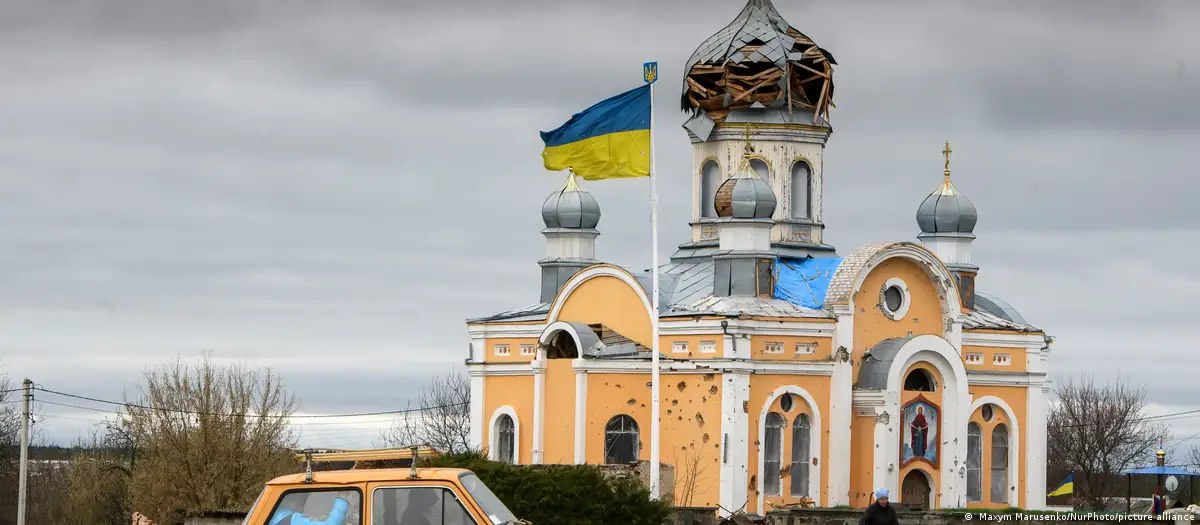Center for Civil Liberties invites to press conference on war crimes against religious communities and clergy

On Wednesday, 24 January, the Center for Civil Liberties is organising a press conference “Nothing Sacred: War Crimes of the Russian Occupiers Against Religious Communities and Clergy“.
- Date: 24.01.2024
- Time: 12:00 AM
- Venue: Media Center Ukraine (8/16 Khmelnytskoho St., Kyiv)
Live stream in Ukrainian and English.
Speakers:
- Viktor Yelenskyy, head of the State Service of Ukraine for Ethnic Policy and Freedom of Conscience
- Yevhen Zakharov, director of the Kharkiv Human Rights Group
- Vyacheslav Likhachev, member of Centre for Civil Liberties expert council
- Ruslan Khalikov, religious scholar, head of the project “Religion on Fire”, Workshop of Academic Religious Studies
During the press conference, numerous facts of religious persecution and IHL violations in the occupied territories by the aggressor and violations in relation to religious buildings during hostilities will be presented. The event is aimed, among other things, at informing the international audience.
Media accreditation is available here: https://bit.ly/Accreditation_CCL
In today’s Kremlin ideology, Russia and the Western world are perceived as different civilizations that profess opposite values. Putin’s propaganda tries to portray the modern West as a “soulless” and immoral society, contrasting it with a fictional image of traditional Russia. Through the exploitation of religious sentiments, pompous rhetoric and simply homophobic stereotypes, the Kremlin manages to influence the conservative segment of the international community. Some religious circles in the West are relatively influenced by this propaganda. The far-right groups across Europe, skeptical of modern liberal secularism, see Putin’s Russia as a role model.
All of this is the result of a lack of awareness of the scale and systematic nature of religious persecution in Russia and in the occupied territories of Ukraine.
The destruction of religious communities, seizure of their property and buildings, illegal arbitrary detentions and violence against clergy and religious people are part of the aggressor’s daily practice in the occupied territory.
A number of religious denominations, such as Jehovah’s Witnesses, some Protestant denominations and certain trends in Islam, as well as communities under the jurisdiction of the Orthodox Church of Ukraine, are being consistently eradicated.
Nothing could be further from both modern standards of respect for freedom of religion and the traditional respect for religious communities that was the norm even during the Golden Horde era.
Despite the protected status of places of worship in international humanitarian law, the number of churches, houses of worship, mosques, synagogues and other religious buildings that have been destroyed during the hostilities runs into hundreds.
In most instances, the churches were destroyed as a result of indiscriminate fire, but there are numerous documented cases where it can be confidently stated that religious objects were deliberately and purposefully demolished. The occupiers’ use of religious buildings for military purposes was clearly systematic, which is also a violation of IHL.
Russia tries to present itself as the defender of Moscow Orthodoxy, which it calls the only canonical Orthodox Church in Ukraine, and which is allegedly under threat from the Kyiv authorities and those whom the Kremlin calls “schismatics”. Meanwhile, it is the churches that were under the jurisdiction of the Moscow Patriarchate at the time of the full-scale invasion that numerically predominate among the religious buildings destroyed as a result of the fighting.
This press conference is organized by the Center for Civil Liberties as part of the USAID/ENGAGE activity, which is funded by the United States Agency for International Development (USAID) and implemented by Pact. The contents of this press conference are the sole responsibility of Pact and its partners and do not necessarily reflect the views of USAID or the United States Government.

